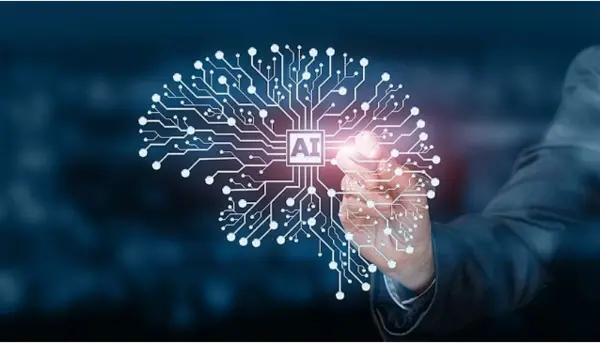The introduction of artificial intelligence (AI) has reshaped the coaching landscape in unprecedented ways. The development of the AI coaching platform, in particular, gives rise to an era in coaching enriched with personalized insights, data-driven guidance, and transformative experience.
The coaching landscape is no longer reliant on traditional face-to-face interactions. An AI coach can create an immersive user experience that overcomes geographical and time restraints. Users can access virtual coaching platforms anywhere and at any time. This increase in convenience offers a borderless space where coaches and clients can easily engage with each other no matter where they are in the world.
AI-Enhanced Coaching
Integrating the cutting-edge capabilities of AI in coaching creates a powerful platform capable of tailoring customized approaches in personal and professional development. It’s like having a pocket coach who can advise anytime and anywhere.
Although AI coaching brings forth a paradigm shift in the coaching industry, it is still far from perfect. Here are some advantages and disadvantages of AI in coaching:
Advantages of AI Coaching
● Personalisation
AI analyses its conversation with users to tailor a coaching strategy compatible with their needs. The more information you give the AI coach through conversations, the more it can adjust to cater to the user’s circumstances.
● Real-Time Feedback
To be able to talk to a traditional coach, you need to arrange an appointment. Also, they can’t exactly be available every time you need them. AI coaches provide real-time feedback on the user’s development progress, creating a more responsive and adaptive coaching experience.
● Global Accessibility
AI coaching platforms make coaching more accessible to anyone. This accessibility makes it easier for individuals living in remote places with no available professional coach and persons with disability to experience quality coaching despite their circumstances.
● Time Efficiency
AI makes it easier for traditional coaches to gather information about the user. It analyses the client’s needs and preferences through its conversation, providing coaches with reliable information for coaching planning in real time. This immediacy in information gathering gives coaches extra time to develop an effective coaching strategy.
Disadvantages of AI Coaching
● Lack of Human Connection
Although AI elevates coaching to a whole new level, it may struggle to replicate deep human connection stemming from human empathy and emotional understanding.
● Overreliance on Technology
Users and coaches may become over-reliant on AI in the coaching process. Doing so may increase the likelihood of neglecting the importance of human intuition and emotional intelligence in the coaching process.
● Privacy Concerns
Users may feel hesitant to share personal information for fear of misuse and unauthorized access.
● Technical Challenges
AI is not free from potential technical glitches and errors that may disrupt the quality and continuity of coaching sessions.
Elevating Human Potential
AI’s ability to elevate human potential applies to both users and coaches. An effective AI-coaching platform unlocks latent capabilities within individuals, paving the way for a successful journey to their personal and professional development.
Users can benefit from AI’s personalized coaching strategies, making coaching more relatable. Users resonating with their coaching plan will likely follow the process and achieve sustainable growth.
Additionally, AI coaching platforms’ real-time feedback empowers users to make instant adjustments depending on their progress. This immediacy in improvement helps users realize their potential and refine their shortcomings. The continuous improvement cycle lays the foundation for unlocking the user’s potential.
For coaches, AI is a reliable partner that helps them concentrate on core coachi-ng duties like building authentic connections and empathetic relationships with clients. AI handles the intricacies of skill development and immediate support, while coaches focus on providing users with the emotional support necessary for personal and professional development.
The human connection remains an irreplaceable element in coaching. AI plays as a reliable partner for coaches. It is not a replacement. The elevation of human potential is a shared venture between users, coaches, and AI.
Case Studies and Success Stories
To better understand the crucial role of AI in coaching and other industries, let’s take a look at these real-world success stories.
MyGov Corona Helpdesk
As a quick response to panic and misinformation caused by the COVID-19 pandemic, the Government of India partners with Haptik to create an AI-powered solution. The result of the collaboration is the MyGov Corona Helpdesk. In just five days of its implementation, MyGov Corona Helpdesk answered over 1 billion queries while catering to more than 84 million Indian citizens.
In addition to answering user queries, MyGov Corona Helpdesk also helped bust common myths and misinformation about COVID-19, examine citizens, spread precautionary measures against the virus, and send the latest advisories from the Ministry of Health.
Mental Health Chatbot Tess
Tess is a psychological AI service customized to support caregiving professionals, patients, and family caregivers. It uses various psychological approaches to engage with users. Like AI-coaching platforms, Tess can create highly customizable support for thousands of people in real-time.
Technical report on the preliminary launch of Tess showed that 70% of the users found value in talking with Tess. During its preliminary launch, Tess exchanged more than 12,000 messages with users. Around 76% of the users found Tess’ support and coping skills relevant. Additionally, conversations with Tess were helpful 88% of the time.
The Future of Coaching
With the involvement of AI in coaching, the future directory of the industry revolves around technological innovations involving the increase in adaptability and personalization of the coa-ching process. From AI-driven intuitiveness and innovations in leadership coaching to the possibility of virtual reality immersion, coaching will continue to evolve together with the latest technological advancements.
The future is not limited to coaching. It is about the continuous development of human potential through human coaches’ wisdom and technology’s power.
